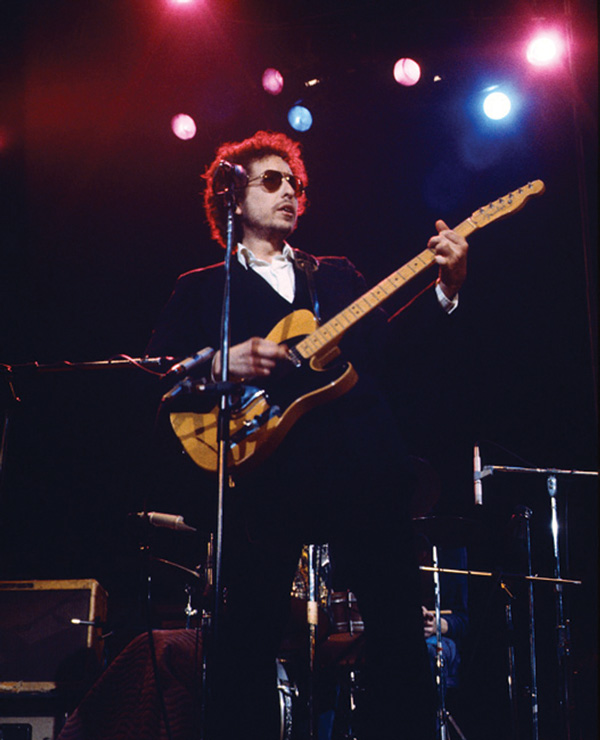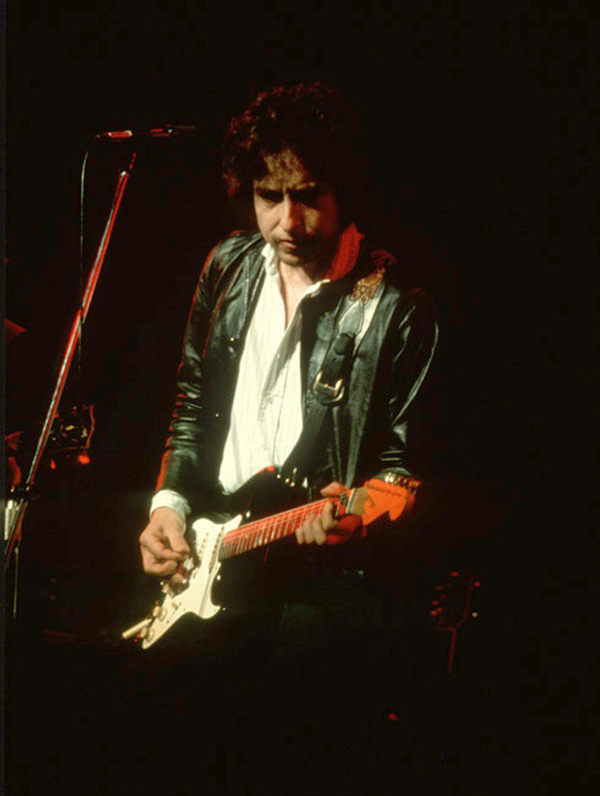News & Articles
Browse all content by date.


For his fans it’s a familiar story. He was born Robert Zimmerman in St. Mary’s Hospital on May 24, 1941. His parents, Abram and Beatty, lived upstairs in a Central Hillside duplex till young Robert was six. From here the family moved, now with two small boys in tow, to Hibbing where Abram ran a hardware store. As a teen Robert discovered rock and roll and other music from the vast universe of late night radio, formed several bands and made a lot of noise while stirring up a dream that was fortified when he got a chance to perform with Bobby Vee. In 1959, when Buddy Holly’s Winter Dance Party rolled in to perform at the Duluth Armory, such proximity was irresistible and the future Bob Dylan had to be present. From the front of the crowd the youth made eye contact with the famed performer and he felt a spark. Days later the crash that took the lives of Buddy Holly, Ritchie Valens and The Big Bopper produced a shock felt ‘round the world.
But this close proximity set a fire ablaze in the 17-year-old Zimmerman’s soul. His path took him to Dinkytown, the U of MN where he began a lifelong habit of mining America’s musical veins, discovering blues, folk, Gospel and history. The performer became a singular songwriter who quickly became established, even while in his twenties, as one of the most influential songwriters in history. These traits – which he nurtured for a lifetime – earned him recognition from one of the most respected international bodies, last week awarding him the Nobel Prize for Literature.
Though many people were surprised by this most recent accolade, the truth is that rumors swirled about this possibility last year before the 2015 winner was announced. The Nobel Prize committee amplified this honor by explaining precisely what earned him the award: “for having created new poetic expressions within the great American song tradition.”
This award had been preceded by a lifetime of achievements including 12 Grammy Awards, one Academy Award, one Golden Globe, induction into several halls of fame and numerous other prestigious honors and accolades as well as the Presidential Medal of Freedom in 2012.
Controversies
Over the course of a lifetime Bob Dylan has not been immune to controversy. Many of the original fans of his music steeped in the folk tradition were disturbed when he plugged in and went electric. His move to recording in Nashville was again out of step with the heavy metal and psychedelic rock that moved into pop music culture. Touring during his Gospel period (1979-81) resurrected the booing that occurred when he traveled with The Band in 1965-66. So it is no surprise to find that not everyone was on board with the announcement last week, suggesting that many “more worthy” candidates had been passed over. It should be noted that every year many worthy candidates are passed over, and Dylan is not the first songwriter to receive this prize.
There is a second controversy that has swirled around the Northland whenever Dylan’s achievements are publicly noted. Efforts to honor the hometown boy with a road were stalled for years by the erroneous notion that he did not care about his North country roots. Books like Song of the North Country by author David Pichaske would help put this to rest if they were more widely read.
Last month a Libations at the Library event featured a number of speakers, one of whom addressed this matter head on. Phil “Fitz” Fitzpatrick, a career teacher at the Mardhall School here and the Mesabi Range College in Virginia, has been a lifelong poet and Dylan fan as well as author. In the first section of his presentation he outlined Seven Signals that Dylan Keeps the Northland in His Heart.
1. Nature’s healing power is a theme that runs through many of his songs. (e.g. Huck’s Tune)
. He still performs here in Minnesota. (11 concerts in recent years.)
3. When receiving a Grammy he gave a nod to his encounter with Buddy Holly here at the Winter Dance Party concert at the Duluth Armory. (January 31, 1959)
4. He still has family connections here, including his brother David who lives just west of the Twin Cities on the Crow River.
5. His parents are buried here.
6. There are local landmarks here with which he is associated. (His childhood homes, the Duluth Armory)
7. References to his father were also cited.
Fitzpatrick underscored that Dylan left the area at an early age, he inherited a number of qualities from his family which have been with him throughout his life, including a tireless work ethic, a penchant for showmanship and a fascination with rambling.
There are countless people who qualify as authorities on Dylan’s significance, but few more qualified locally than John Bushey, host of KUMD’s longstanding Highway 61 Revisited. Bushey last spring stated, “All musical icons are from somewhere. Dylan happens to have his roots in Duluth and Hibbing. His influence is not only in music and on other musicians, but on poets, artists, writers, politicians, and people in many other fields.”
In sharing why this matters to Duluth and the Northland, he explains, “People somehow, whether right or wrong, feel a connection to famous people. They may feel like they know them, or have been guided in life somehow. People travel the world to seek out the roots of those they feel connected to, or influenced by. Whether it’s Liverpool, Graceland, Texas, or Duluth and Hibbing, people want to travel to see where the person they admire is from.”
Dylan has never really denied his Minnesota roots. On the back of his first two albums he is listed as being from Duluth. He wrote poetry and songs about northern Minnesota, Duluth, Hibbing, and the Iron Range (North Country Blues, Girl from the North Country, etc...). He mentioned Duluth by name in his song “Something There Is About You” on Planet Waves. He’s mentioned it on national TV when receiving a Grammy award. As Bushey notes, “His roots are here. He is from here. Therefore, whether we like his music or not, we should be proud that someone from this area has had such an important impact on the world.”
Nelson French concurs. As VP of the Armory Arts and Music Center board, French is quite passionate about honoring our ties to Dylan and placing his life here into its historical context. “Mr. Dylan’s roots in the North Country are an important part of Duluth’s and the Iron Range’s history,” said French, “and tied inextricably to the history of our nation and the world. Dylan was born in Duluth in the early 1940’s as World War II was becoming a part of everyday life in America and six when his family moved to the Iron Range -- a dual and economically connected community (the North Country) that provided much of the raw material that allowed our country to prevail in the war to end all wars. The post-war era brought with it a transformation of American society. Mr. Dylan grew through the 1950’s and launched himself on the world stage shortly after seeing Buddy Holly perform at the Historic Duluth Armory.
“It is very important for communities to recognize and celebrate their history and the history of those who come from a place and have done well and made change locally - and/or have gone on to make change in the world. Honoring Mr. Dylan’s roots in the North Country and celebrating the influences should be a vital part of any local or regional educational and tourism efforts. In this regard I think of the “Triangle of the North Country” which includes the Duluth Goldfine/Zimmerman Home, the Hibbing High School and Zimmerman Home and the Historic Duluth Armory.”
Local Dylan fans who felt vindicated by this selection from the Nobel Prize committee were encouraged because many believe this prize will lead a few more people to investigate the why of it, appreciating the depth and importance of his contributions to literature, music, and culture. It’s been said that if a man is worth knowing at all he’s worth knowing well. Bob Dylan is such a man.
| Tweet |


